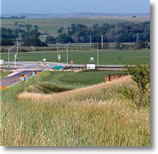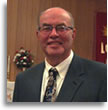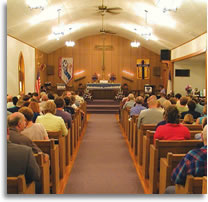Despite declining populations, rural communities offer vibrant opportunities to joyfully share the comfort of the Gospel.
Rural ministry is loaded with opportunities,” observes Rev. Dean Hanson, a pastor in central Nebraska.
His comment reflects the optimism and energy for church life in rural America displayed at the “Reaching Rural America for Christ” conference last November in Nebraska City.
 | |
Hazard, Neb.Photo courtesy hazardnebraska.com |
Church, Pleasanton, Neb., and Faith Lutheran Church, Hazard, emphasizes that those communities also need the comfort and hope of the Gospel of Jesus Christ.
“Somebody’s got an underage daughter that’s expecting; somebody is living together without marriage; somebody else is dying,” he says. “They all need to hear the Gospel. Not all of them will become members of your church, but some will.”
While participants shared ideas and encouraged each other, the conference was significant because participants also provided input for expanded services and resources to encourage and affirm rural and small-town ministry. Participating were 114 laypersons, pastors, and district and national staff members.
Some 3,000 of the more than 6,000 congregations in The Lutheran Church—Missouri Synod fit the rural, small-town category, explains Dr. Ralph Geisler, director of the rural and small-town ministry resource center at the Schroeder Leadership Training Center at Saint Paul’s Institute for Education (SPIFE) in Concordia, Mo. Often cited at the conference was the estimate, based on a Nebraska District study, that perhaps 50 percent of people in rural and small-town communities do not have a church home.
Geisler classifies rural and small-town ministries as those in towns with less than 15,000 residents. The regional economies these ministries serve are often agribusiness based, but they also may involve forest products, fishing, mining, or tourism.
SPIFE and the Rural Ministry Task Force of LCMS World Mission co-sponsored the 2009 conference.
Flavoring the conference and reflecting Synod’s Ablaze! goal to share the Gospel with 100 million people worldwide, participants often spoke of serving as “mission outposts” and equipping “missionaries.” Geisler explains that congregation members can be prepared to speak about their faith to friends and neighbors. At the same time, young people can be equipped to be “missionaries,” whether they remain in the community, go away to college, or leave to work in larger towns.
A Community Anchor
 | |
Rev. Dean Hanson | |
 | |
Faith Lutheran ChurchPhotos courtesy Diane Feldman |
Interactions in small communities are among people who know each other, Cantrell explained. He emphasized the importance of establishing “biographies”—of listening to understand the background and histories of people, as well as sharing one’s own
“biography” (story).
The sociologist said people who live in rural places are more likely to express contentment with community, family, local church, and trust of their neighbor, but they are likely to regret the lack of services readily available in large communities. His studies found that population will decline where people don’t have access to a town of 10,000. Yes, people move away. But Cantrell also noted that census studies in far western Nebraska revealed that as much as 30 percent of the population said they had arrived in the last five years.
The best thing leaders in rural communities can do is to get people together to form networks, Cantrell said. “If you can get four or five people to discuss working together, you are changing the social structure.”
“Loaded with Opportunities”: Three rural congregations tell their storiesBible Studies focusing on rural and small-town ministry – spife.org |
Geisler said three groups will be formed as a result of the conference: One will focus on revitalization for congregations. A second will gather resources for regional ministries. A third will focus on Christian education—day schools, Sunday Schools, and adult Bible studies—to equip members to be missionaries.
—
About the Author: Roland Lovstad (roland.lovstad@lcms.org) is a member of Immanuel Lutheran Church, Perryville, Mo., and an editor-at-large for The Lutheran Witness.





